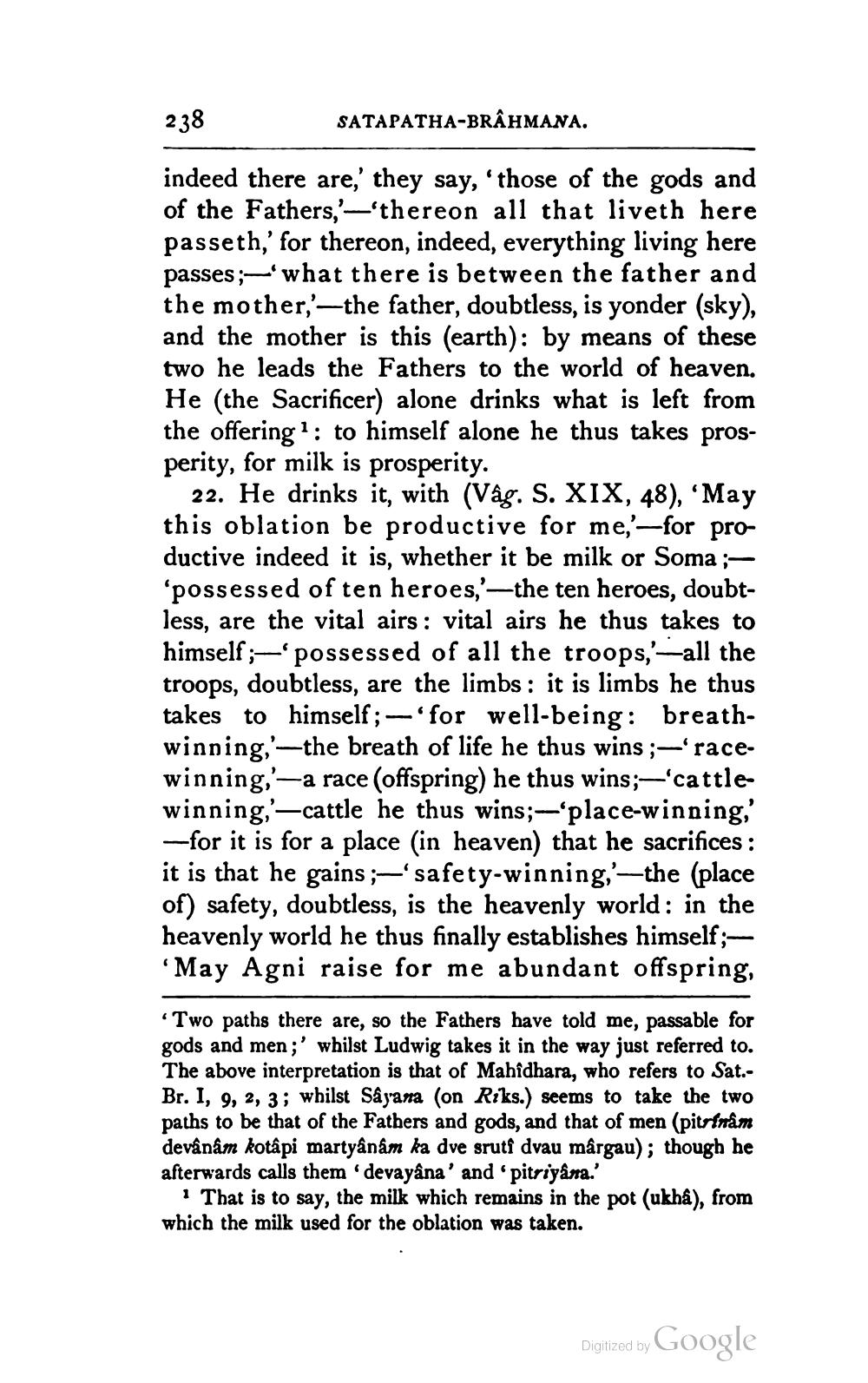________________
238
SATAPATHA-BRÂHMANA.
indeed there are,' they say, 'those of the gods and of the Fathers,'-'thereon all that liveth here passeth,' for thereon, indeed, everything living here passes;—'what there is between the father and the mother,'—the father, doubtless, is yonder (sky), and the mother is this (earth): by means of these two he leads the Fathers to the world of heaven. He (the Sacrificer) alone drinks what is left from the offering ?: to himself alone he thus takes prosperity, for milk is prosperity.
22. He drinks it, with (Vâg. S. XIX, 48), 'May this oblation be productive for me,'—for productive indeed it is, whether it be milk or Soma ;'possessed of ten heroes,'—the ten heroes, doubtless, are the vital airs : vital airs he thus takes to himself;— possessed of all the troops,' --all the troops, doubtless, are the limbs : it is limbs he thus takes to himself; -'for well-being: breathwinning,'—the breath of life he thus wins ;-'racewinning,'—a race (offspring) he thus wins;—'cattlewinning,'—cattle he thus wins;--'place-winning,'
-for it is for a place (in heaven) that he sacrifices : it is that he gains ;-'safety-winning,'--the (place of) safety, doubtless, is the heavenly world: in the heavenly world he thus finally establishes himself;May Agni raise for me abundant offspring,
Two paths there are, so the Fathers have told me, passable for gods and men;' whilst Ludwig takes it in the way just referred to. The above interpretation is that of Mahîdhara, who refers to Sat.Br. I, 9, 2, 3; whilst Sâyana (on Riks.) seems to take the two paths to be that of the Fathers and gods, and that of men (pitrinam devânâm kotâpi martyânâm ka dve sruti dvau mârgau); though he afterwards calls them'devayâna' and 'pitriyana.'
· That is to say, the milk which remains in the pot (ukha), from which the milk used for the oblation was taken.
Digitized by Google




